

 TERRY SMITH takes us back to the origins of Corgi through to the present day.
TERRY SMITH takes us back to the origins of Corgi through to the present day.
The creator of Corgi Toys, Arthur Katz, was born in Johannesburg to German parents in 1908. After his father's death hen he was 12, Katz and his mother moved to Nuremberg, the centre of the German toy industry. After completing his schooling and an apprenticeship at one of the city's toy companies, Arthur joined Tipp & Company, a maker of pressed-tin toys owned by Phillip Ullmann.
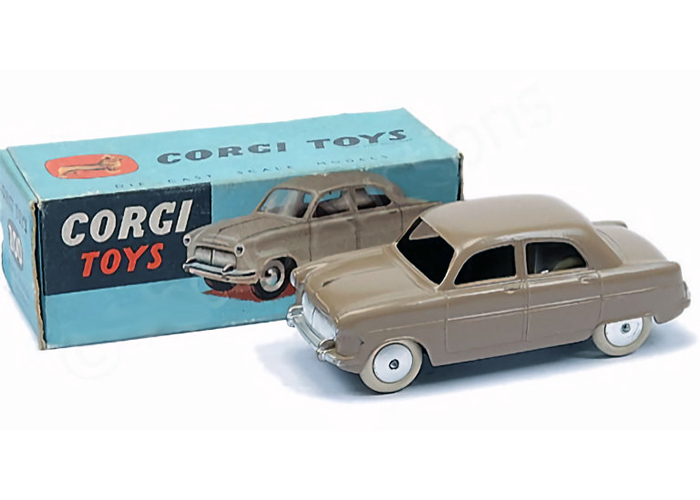
A very early Corgi model of a 1950s Ford Consul. This was before the company added windows, interiors, and other features that moved the brand forward. Note the plain blue box has yet to have the signature yellow added to it.
Katz held a British passport due to his native South Africa being a British territory, so in 1933 emigrated to Britain. Ullmann joined him and together they founded Mettoy. The company had a quick start but was soon diverted to war production at their base in Swansea, Wales.
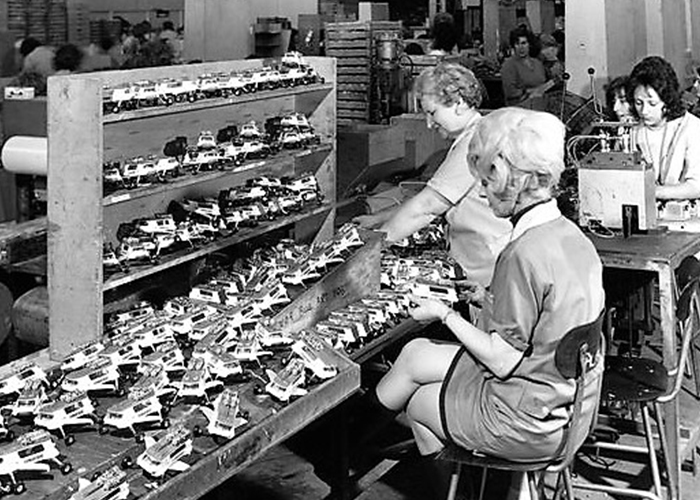
Production staff at the Mettoy factory in South Wales that made Corgi Toys.
In 1956 Mettoy introduced the Corgi line and Katz and Ullmann showed their devotion to their adopted country by naming the brand after the breed of dog most favoured by the British royal family. At the time, diecast metal toy cars were fairly crude with most companies painted the zinc-alloy forms that were pressed from moulds and added wheels. Mettoy’s engineers and designers added extra details like plastic windshields, interiors, and diamond-crystal headlights as well as gadgets and gimmicks like spring-mounted suspension, and doors, bonnets, and boots that opened.
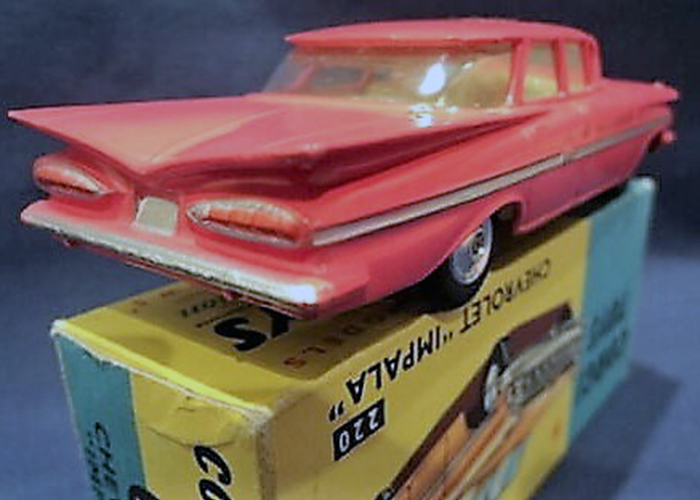
If you read my Playground Racers article you will see the high regard I had for Corgi’s Chevy Impala, from the early 1960s.
The first toy cars that they made were models of those produced by UK car manufacturers, but Mettoy soon realised that by making models of cars from other countries would help their appeal to export markets, especially the US. Children at the time would be amazed seeing Corgi producing models of cars like the Studebaker Hawk and Chevrolet Impala.
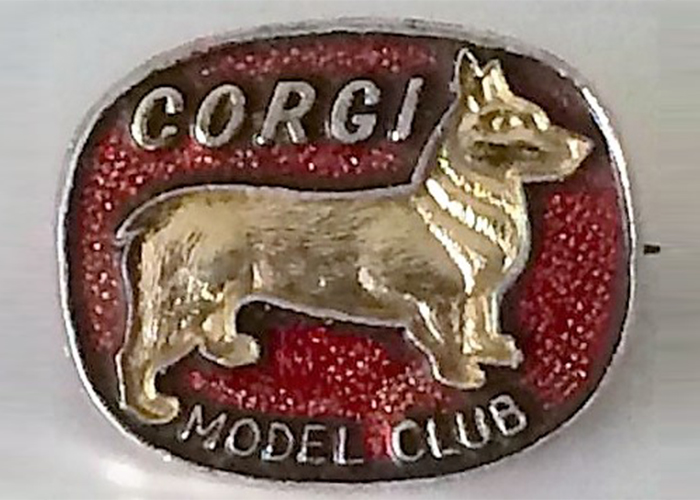
I was always envious of kids at school who wore this badge on their blazers.
As it rolled into the 1960s, the company was riding on a wave of success both in the UK and in export markets. Arthur Katz received an OBE for his efforts. In an amazing stroke of genius, the company produced a model of the James Bond Aston Martin complete with many working features, which went on to sell millions.
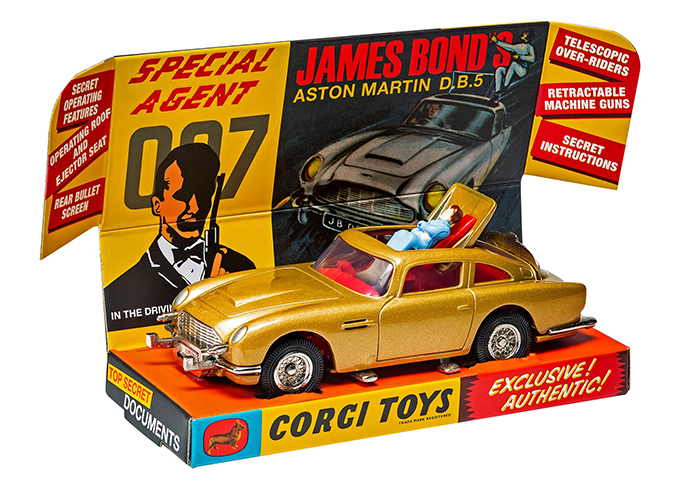
'It sold in Millions' - The 007 Aston Martin DB5 packed with working features from Corgi was awarded 'The Best Boys Toy of 1965'
By 1970, there was approximately 3,500 staff working at the Swansea factory and in 1973 Katz received a CBE. In the same year the Corgi Batmobile model became the next big seller for Corgi. By the mid 1970s Katz handed over control of the company to his son Peter but, shortly after, rising production costs and cheaper imported products from the Far East put a lot of pressure on Mettoy. By 1983 the company had declared bankruptcy.
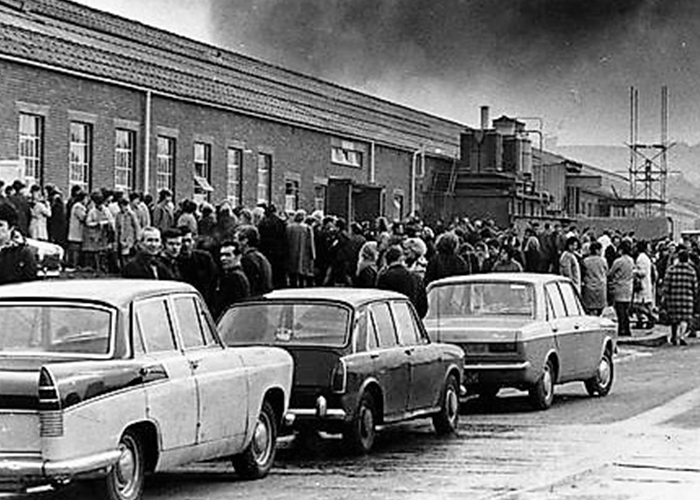
At its peak Mettoy employed 3,500 staff at their Swansea-based plant. A visiting export executive from the US described it as “like General Motors, but in miniature!”
After a couple of efforts to revive the brand, it was sold to Mattel who looked at making the products at their factory in China. However, they sold on the brand to a British consortium in 1995 and it re-emerged as 'Corgi Classics'. This company started to reproduce fine-scale 1/43rd vehicles, as well as a range of diecast aircraft, much to the delight of collectors worldwide.
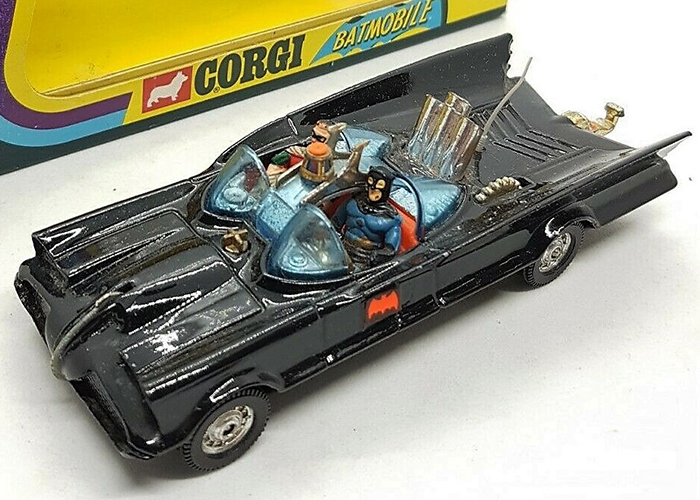
Released in 1973, many years after the TV series had been made, was Corgi’s Batmobile. This is another model that sold in huge quantities.
In 1999, Corgi Classics Limited was taken over by Zindart and by 2000 Corgi was once again the top British diecast producer. The same year, Corgi bought the rights to Lledo, taking over the popular Days Gone series and the Vanguards series was also acquired in the deal. Days Gone and Vanguards models were sold by Corgi under the Lledo brand until 2004, after which the Lledo name was dropped and the models officially became part of the Corgi Classics line.
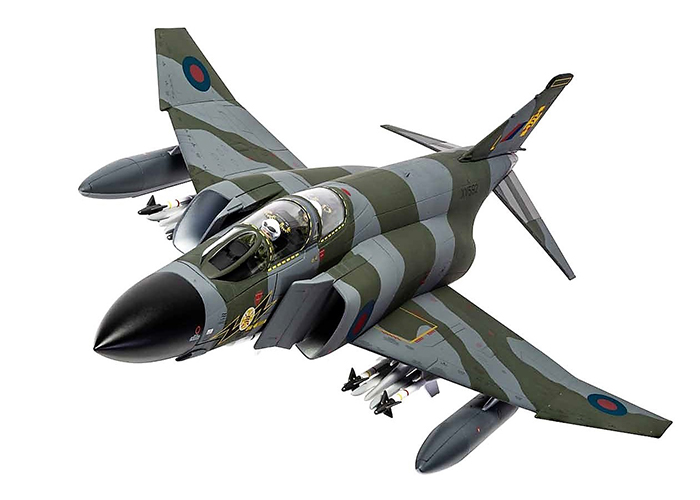
Reborn in 1996 as 'Corgi Classics', the company also diversified into highly detailed diecast aircraft models.
The success of the re-born Corgi ranges did not go unnoticed and they were acquired by Hornby Hobbies in 2008. Jumping forward to 2022, even more models are still being announced. Gaugemaster are proud to offer this iconic range online and in our store.
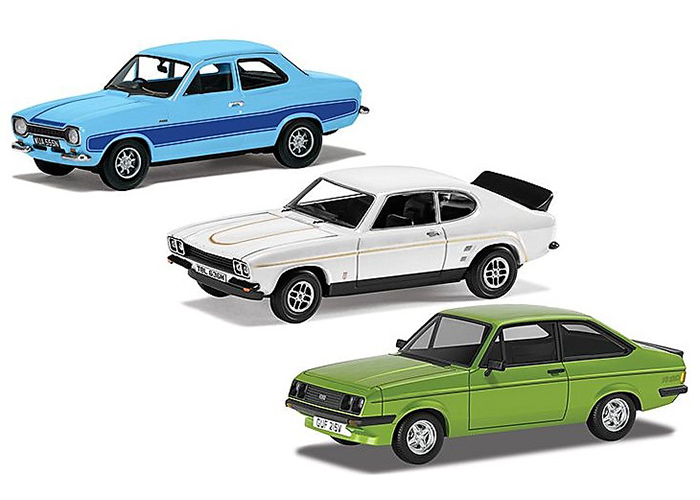
Today, as part of Hornby Hobbies, their range of collectable diecast models continues to expand. This is a nice set of Classic Ford RS models which is currently available.